- Home
- international
- news
- 20 days that shook America: Since the death of George Floyd, the Black Lives Matter movement has already changed the country
20 days that shook America: Since the death of George Floyd, the Black Lives Matter movement has already changed the country
Sophia Ankel

- Three weeks after the death of George Floyd at the hands of Minneapolis police on May 25, mass protests have erupted across the US and the rest of the world.
- The ongoing demonstrations have already prompted change: city council members have vowed to reform police departments, statues have toppled, and big cooperations are promising greater diversity and inclusivity.
- Here are significant 13 effects that have been achieved as a result of the Black Lives Matter movement.
Three weeks after George Floyd's death at the hand of police officers in Minneapolis, thousands of people across the country — and the world — have taken to the streets to demand justice, condemn racism and speak out against police brutality.
The protests have been historic: Overwhelmingly peaceful and highly diverse crowds have been gathering in city centers and in front of government institutions to demand change. And slowly, it appears to be working.
In the 20 days that have followed Floyd's death, editors have resigned, statues have toppled, and police reforms have been announced in several cities across the US.
Here is a round-up of some of the concrete changes that are happening as a direct result of the ongoing Black Lives Matter movement.
Four days after killing George Floyd by kneeling on his neck during an arrest, former Minneapolis police officer Derek Chauvin was charged with third-degree murder. This was later updated to second-degree murder.
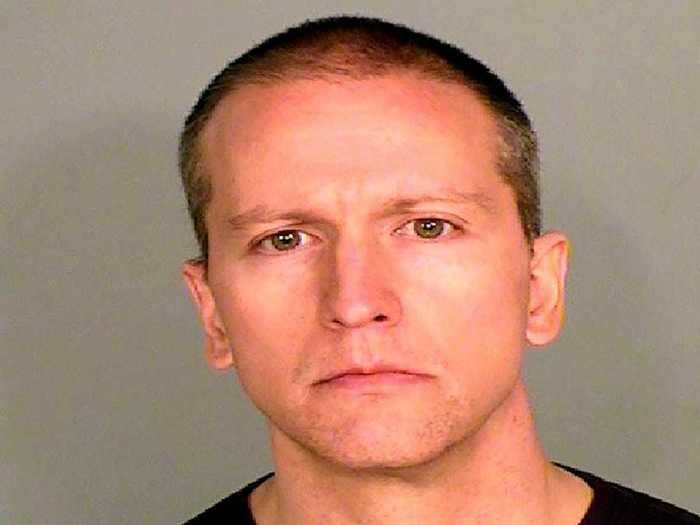
While Chauvin could still face other charges, it is unlikely that he will be accused of first-degree murder as prosecutors would need to prove premeditation, intent, and motive, according to the Associated Press (AP).
Earlier this week, Chauvin made his first court appearance where a judge set his bail at $1.25 million. He is expected to enter a plea on June 29.
According to the state's sentencing guidelines, second-degree unintentional murder carries a recommended sentencing of 12 years in prison. The maximum sentence for the charge is 40 years in prison.
The three other police officers who were at the scene when Floyd died have also been charged with aiding and abetting second-degree murder.
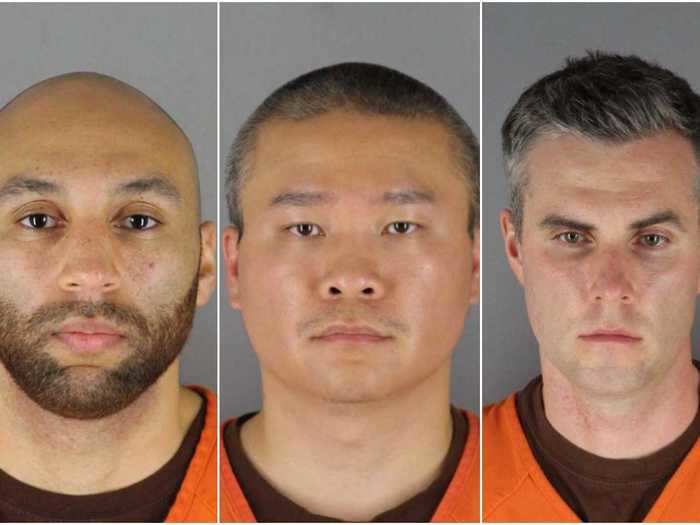
Former police officers Thomas Lane, Tou Thao, and J Alexander Kueng were arrested more than a week after Floyd's death. They are being held on $1 million bail.
Kueng and Lane were two trainee officers, who were only days into the job when the incident happened.
In a historic move, Minneapolis lawmakers vowed to disband the city's police department less than two weeks after Floyd's death.
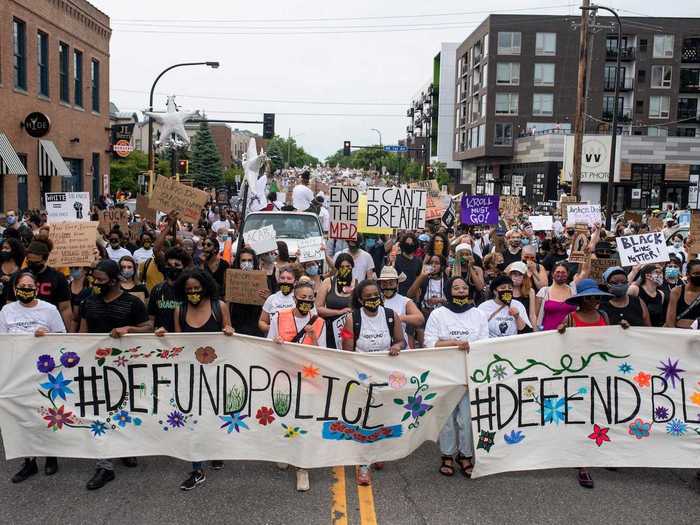
Nine city council members announced their support to dismantle the city's police force at a community rally last week.
Minneapolis city council president Lisa Bender said: "We're here because we hear you...We are here because here in Minneapolis and in cities across the United States it is clear that our existing system of policing and public safety is not keeping our communities safe."
"Our commitment is to end policing as we know it and to recreate systems of public safety that actually keep us safe," she added.
The announcement came a day after Minneapolis Mayor Jacob Frey was booed at a rally for refusing to promise protesters that he would defund the city's police.
The council has a veto-proof majority in its decision according to the New York Times, though comprehensive plans have not yet been approved.
On Thursday, Minnesota Gov. Tim Walz also pledged comprehensive police reform. The Democrat told reporters that the proposals will be aimed at police brutality, grants for rebuilding, and more transparency, according to CNN.
Minneapolis isn't the only city that is making changes. New York City Mayor Bill de Blasio also pledged to move funding from the city's police department towards youth and social services.
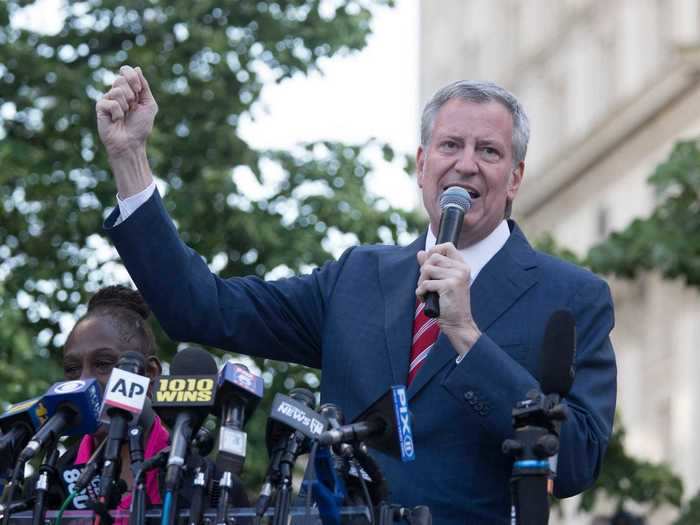
In a statement published last week, de Blasio wrote: "These will be the first of many steps my Administration will take over the next 18 months to rebuild a fairer City that profoundly addresses injustice and disparity."
"While we have taken many steps to reform policing in this city, there is clearly more work to do to strengthen trust between officers and the New Yorkers they serve," he added.
Lawmakers also signed a bill that will repeal the 50-A legislation — a decades-old measure that protected police officers from being held accountable and allowed records of officers to remain secret.
California, Nevada, Texas, and Washington DC (among others) have banned chokeholds and reviewed police reforms.
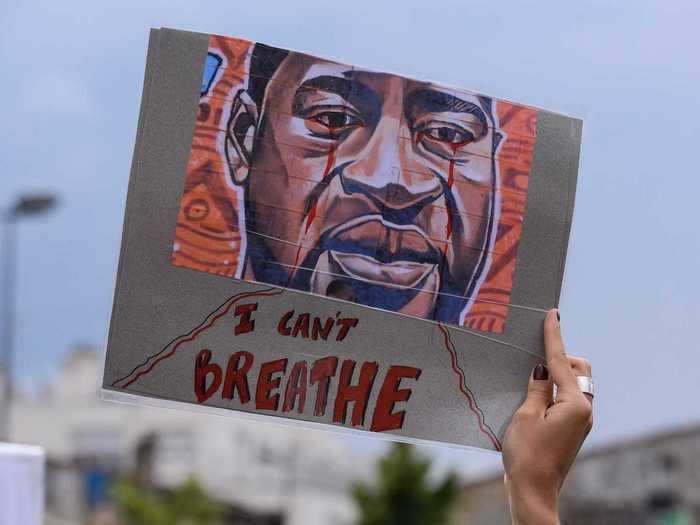
More than a dozen police departments in Californa have said they will ban chokeholds — a move that has also been supported by California Gov. Gavin Newsom, according to the Los Angeles Times.
In Dallas, Texas city officials banned chokeholds and any other airway-restricting techniques, according to the Dallas Morning News.
In Reno, Nevada, the police department also announced it would ban chokeholds and change guidelines on de-escalation, which will include giving persons "other warning options" before using deadly force, the Associated Press reported.
Meanwhile, local legislation in Washington DC is set to be passed this week banning police chokeholds and accelerating the public release of police body-camera footage.
Democrats in Congress have also unveiled sweeping legislation on police reform, including banning chokeholds and forcing federal police officers to use body and dashboard cameras.
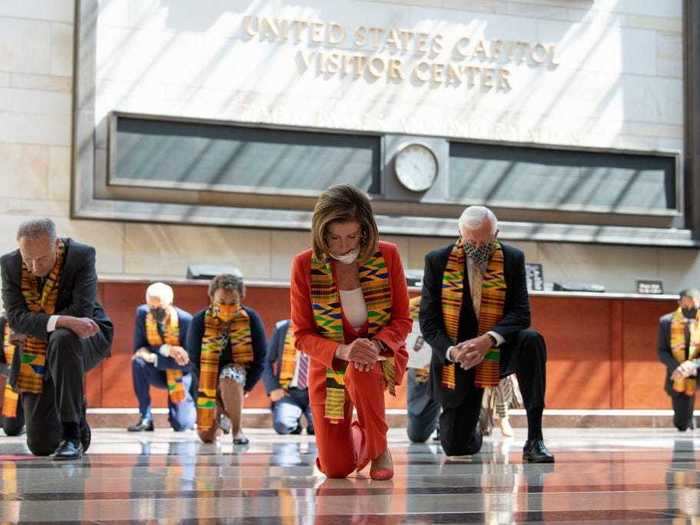
The Justice in Policing Act of 2020, which was introduced on Monday, also eliminates unannounced police raids as "no-knock warrants" and makes it easier to prosecute police for misconduct, according to the BBC.
The bill was introduced by House Speaker Nancy Pelosi, Senate Minority Leader Chuck Schumer, Black senators Kamala Harris and Cory Booker as well as other members of the Congressional Black Caucus.
President Donald Trump has called the proposals a threat to "law and order."
His attorney general, William Barr, also said that he believes the law enforcement system is not "systematically racist."
"I think one of the best examples is the military. The military used to be an explicitly racist institution. And now I think it's in the vanguard of bringing the races together and providing equal opportunity. I think law enforcement has been going through the same process," Barr was quoted as saying in the Guardian.
On top of this, a new database has been set up to collect video footage that documents police violence at the demonstrations across the country.
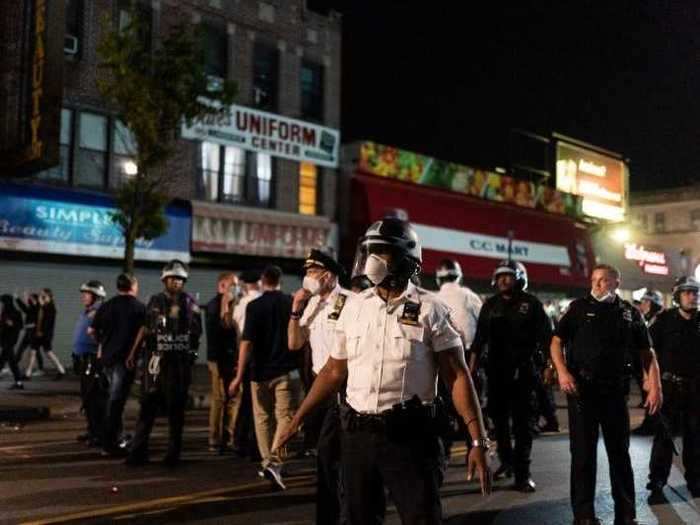
A team of activists, consisting of lawyer T Gregg Doucette and mathematician Jason Miller, put together the public spreadsheet which contains more than 500 incidents of police brutality that occurred at different protests, according to Slate.
Doucette and Miller say they made the database to prevent police from arguing that incidents of violence at protests are one-offs.
The spreadsheet also helps people locate videos of police violence in their area.
Another significant impact of the demonstrations has been the toppling of several confederate and slavery-linked statues around the world.
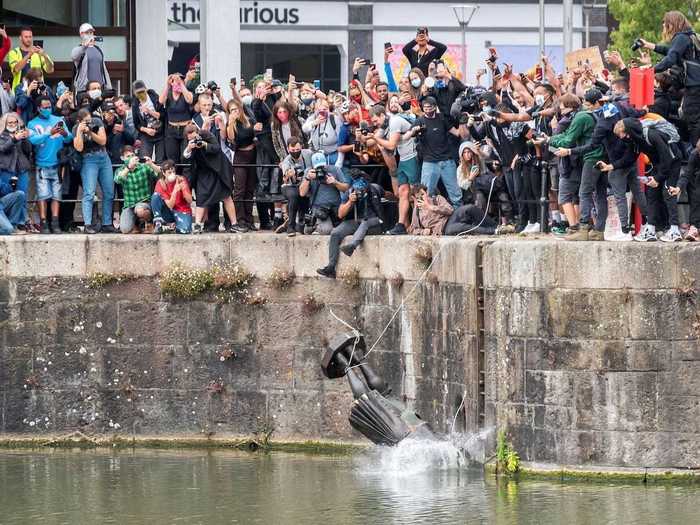
Confederate and imperialist statues around the world have either been vandalized or pulled down during the demonstrations or as a direct result of them.
This week, protesters in Richmond, Virginia used ropes to pull down a vandalized statue of Christopher Columbus. One day later, they did the same to a century-old statue of Confederate President Jefferson Davis.
Other statues of Columbus were also removed this week at the Minnesota State Capitol and in Boston.
In Mobile, Alabama, the council removed a statue of Raphael Semmes, who was an officer in the Confederate navy during the American Civil War. It had been there for 120 years.
Mayor Sandy Stimpson said in a statement: "To be clear: This decision is not about Raphael Semmes, it is not about a monument and it is not an attempt to rewrite history.
"Moving this statue will not change the past. It is about removing a potential distraction so we may focus clearly on the future of our city."
Meanwhile, protesters in the British city of Bristol tore down the statue of 17th-century slave trader Edward Colston and dumped it in a river.
The demonstrations have also sparked wide-ranging conversations about the responsibility industries and organizations — including the media — have to address institutional racism.
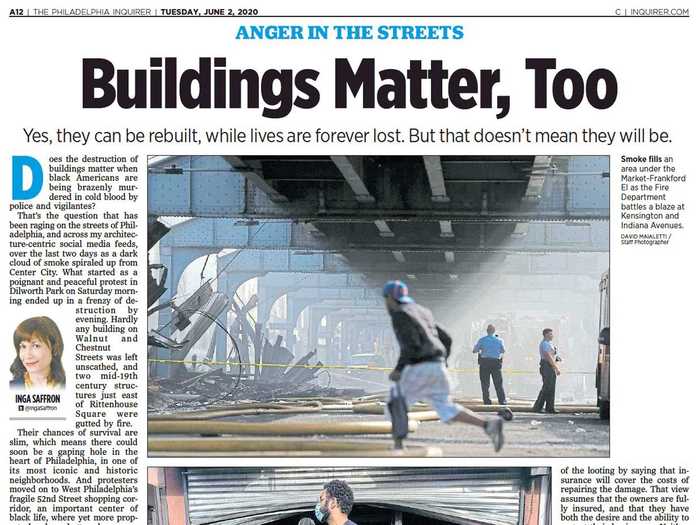
In the last two weeks, several editors of major publications have resigned after receiving backlash from employees and readers alike.
A senior editor at New York Times stepped down after publishing a controversial comment piece by Republican Senator Tom Cotton.
Another top editor resigned at The Philadelphia Inquirer, after approving the headline "Buildings Matter Too."
The movement has also reached other organizations. Just this week, Business Insider reported on Bon Appétit's toxic culture for its employees and contributors of color.
Reddit cofounder Alexis Ohanian stepped down from the company's board of directors this week, urging the company to fill his board seat with a black candidate.
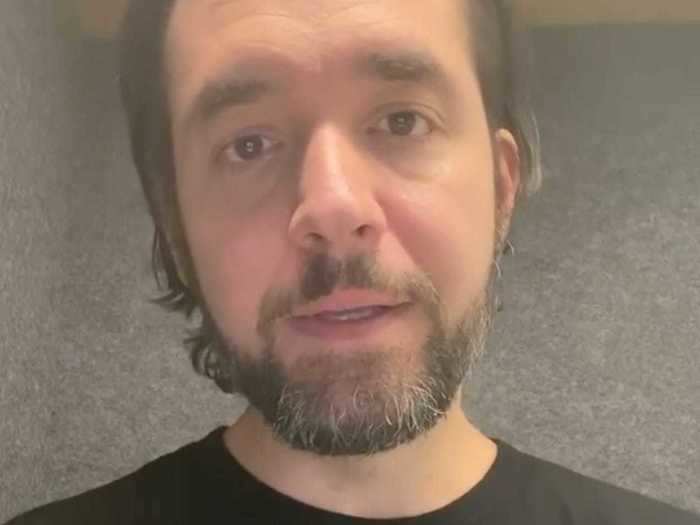
The venture capitalist, who is married to Serena Wiliams, said he would also commit the future gains of his Reddit stock to serve the black community.
In a video posted to Instagram, Ohanian described the move as "long overdue." Reddit has been long been criticized for providing a forum for racist and misogynistic hate speech.
Reddit has since announced that Y Combinator partner Michael Seibel, who is Black, would replace Ohanian.
Source: Business Insider
Meanwhile, CrossFit CEO and founder Greg Glassman stepped down after questioning the existence of systemic racism and downplaying the protests.
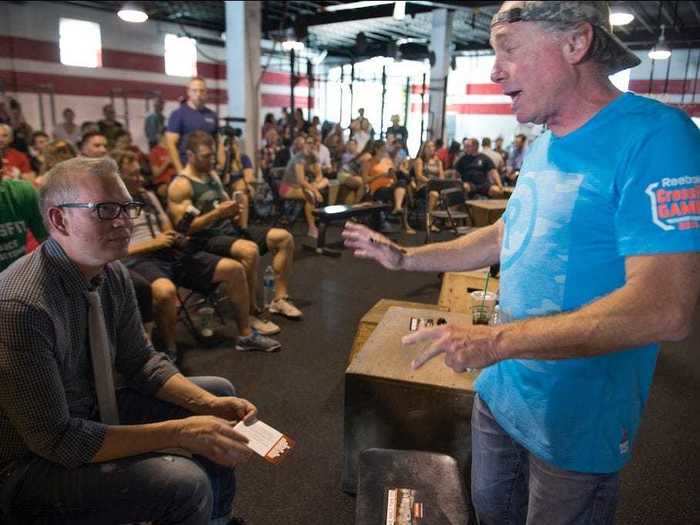
In a recording of a Zoom meeting with gym owners, obtained by BuzzFeed News, Glassman said: "We're not mourning for George Floyd — I don't think me or any of my staff are."
After one Minneapolis-area gym owner's asked why the brand hadn't posted a message in solidarity with the Black Lives Matter movement, the CEO responded: "Can you tell me why I should mourn for him? Other than that it's the white thing to do — other than that, give me another reason."
The entertainment industry has also followed suit. After 32 seasons, the reality TV show Cops was canceled by the Paramount Network.
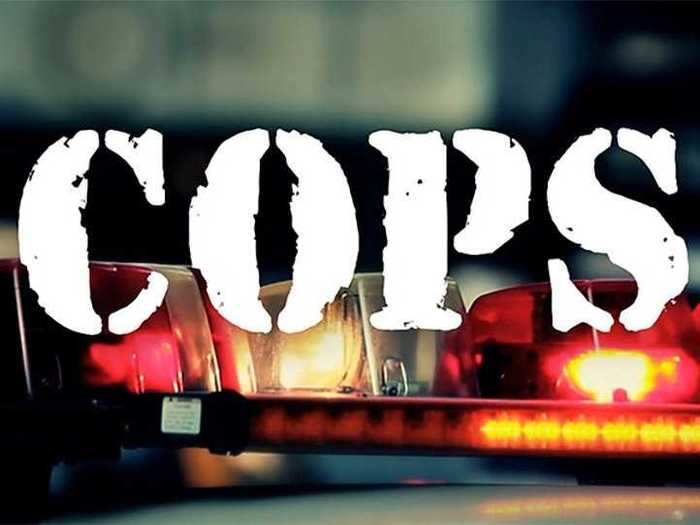
Cops, which debuted in 1989, was a reality television series that showed police chasing down suspects, conducting raids, arresting people, and going on high-speed chases.
A spokesperson from Paramount told the Hollywood Reporter: "Cops is not on the Paramount Network and we don't have any current or future plans for it to return."
The show had one of the longest runs in American television history.
The epic Civil War movie Gone with the Wind was also taken off HBO Max following calls for it to be removed from the US streaming service.
HBO Max said the 1939 film was "a product of its time" and depicted "ethnic and racial prejudices" that "were wrong then and are wrong today," reported the BBC.
It said the film would return to the platform at an unspecified date with a "discussion of its historical context."
The Grammy's have also announced that they would no longer use the word "urban" to describe music of Black origin.
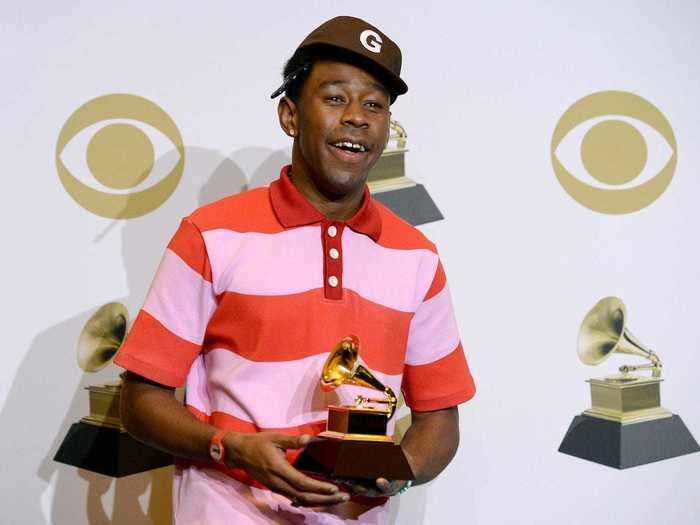
The Recording Academy said it would rename the award for "Best Urban Contemporary Album" to "Best Progressive R&B album, according to the BBC.
Its word choice has been previously criticized by several musical artists, including rapper Tyler, the Creator, who won of best rap album at the 2020 Grammys and told reporters at the ceremony: "I don't like that 'urban' word - it's just a politically correct way to say the N-word to me. Why can't we just be in pop?"
READ MORE ARTICLES ON
Popular Right Now
Popular Keywords
Advertisement